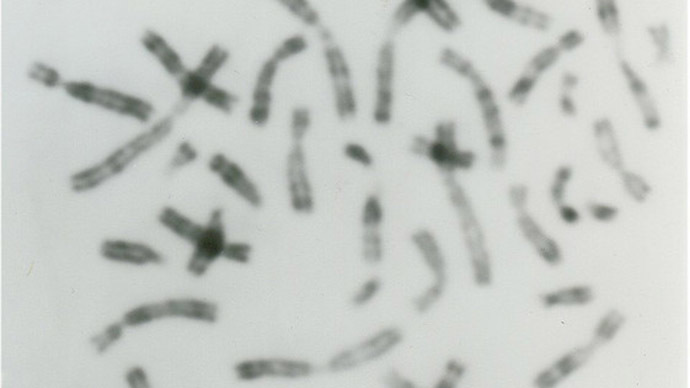Y smoke? Tobacco addiction makes male chromosome quit

A warning to men: A new study claims smokers are more likely to lose their Y chromosomes in blood cells - and the heavier the addiction, the fewer male chromosomes there’s left.
The loss of the Y chromosome, which generally only men possess, may also explain why male smokers have a higher risk of cancer than female smokers. This is because the immune cells in the blood that fight cancer are hampered without their Y chromosome.
“The cells that lose the Y chromosome… they don’t die. But we think that they would have a disrupted biological function,” Lars Forsberg of the Department of Immunology, Genetics and Pathology at Uppsala University in Sweden, as quoted by Live Science portal.
Scientists have been aware for 50 years that Y chromosomes can disappear, and that this is more likely in older rather than younger men.
READ MORE: UK doctors seek permanent ban on selling cigarettes to those born after 2000
Normally, during cell division, copies of all of the chromosomes are made and sorted into the two new daughter cells. But during the complex process, chromosomes are sometimes lost, Forsberg said.
Usually, a missing chromosome would result in the death of the new cell, but cells can survive without a Y chromosome.

But Forsberg and his team have found that the loss of the Y chromosome can be associated with smoking as well as has an increased risk of cancer.
Forsberg and his colleagues, who published their findings in the journal Nature Genetics, collected data from 6,000 men to find out what factors led them to lose their Y chromosomes.
They were questioned about smoking, alcohol use and exercise and also gave blood samples. The researchers found that, other than age, only smoking was linked to a loss of Y chromosomes. Smokers, they found, had a 2.4 and 3.4 times greater risk of losing their Y chromosomes than non-smokers.
However if men stop smoking then Y chromosome production can restore like for men who never picked up a cigarette in their lives.
READ MORE: E-cigarettes don’t act as gateway to tobacco smoking – study
Mammals normally possess a combination of two sex chromosomes, X and Y, which contain important genes. Almost all males have X and Y chromosomes, while females have two X chromosomes, although there are sometimes exceptions. This could explain why female who smoke have a lesser risk of getting cancer than men.
A question that Forsberg and his team haven’t answered yet but which they hope to with further research, is which blood cells lose their Y chromosomes and which ones don’t.
But although the research is unfinished Forsberg believes that his findings will make men rethink their smoking habits.
“If you want to stay healthy and alive, quit smoking today,” he said.














